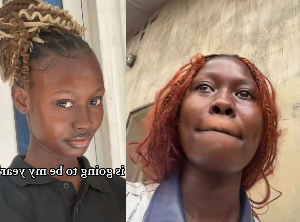A civic organisation, BudgIT, has revealed that states in Nigeria spent a meagre N6,981 per capita on education and just N3,483 on health in 2024.
This was indicated in the 10th edition of the BudgIT State of States Report published by the organisation.
The PUNCH reports that BudgIT is a civic organisation that applies technology to intersect citizen engagement with institutional improvement.
According to the latest report, states implemented less than 70 per cent of their budgets in both sectors, and no state spent up to N20,000 per person on education or N10,000 on health.
In the education sector, the report revealed that states had cumulatively budgeted N2.41tn on education in the 2024 fiscal year. However, in total, the states only spent N1.61tn, indicating a total implementation rate of 66.92 per cent.
“While this is significant, education is a critical social resource, and states will have to tune into more efficient and effective spending (especially in capital and personnel areas) in subsequent years. Looking at the average implementation of education budgets at 66.92 per cent, we see considerable individual state variability. For instance, only nine states (Edo, Delta, Katsina, Rivers, Yobe, Ekiti, Bayelsa, Bauchi, and Osun) implemented over 80 per cent of their education budgets. Impressively, Edo, Delta, and Katsina implemented over 100 per cent of their education budgets (however, it must be noted that Edo State’s final spend was N24.1bn, while that of Delta was N127.73bn).
In terms of spending on education per capita, the states had an average of N6,981: painfully inadequate. Individually, no state spent up to N20,000 per capita. Only eight states spent more than N10,000 per person.”
Both UNESCO and the World Health Organization recommend allocating 15–20 per cent of the national budget to education and health, respectively, in recognition of their importance to human capital development.
As for health, the states budgeted N1.32tn but were only able to spend N816.64bn, indicating a performance of 61.9 per cent, similar to the range in which the states performed on education.
According to the report, only seven states (Yobe, Gombe, Ekiti, Lagos, Edo, Delta, and Bauchi) implemented above 80 per cent of their budgets, with Yobe having the highest percentage performance at 98.2 per cent. However, it is instructive to note that Yobe’s total health expenditure was only N13.24bn, the 24th highest among the states.
“For per capita spending, the states on average spent N3,483: a dismal figure. It is perhaps more concerning that no state spent more than N10,000 per person, and only Lagos, Bayelsa, Edo, Abia, Kwara, Niger, and Delta each spent more than N5,000 per capita. This poor per-person spend for health is much lower than the per capita spend for education previously referred to.
“While healthcare is somewhat of a shared responsibility (the federal government provides a level of funding via the Basic Healthcare Provision Fund, among other things), this subnational behaviour reveals that the states will have to channel more of their increased earnings into healthcare provision.”
This data exists alongside the UNICEF Nigeria report titled ‘The State of Nigeria’s Children: Summary of the 2024 Situation Analysis of Children and Adolescents in Nigeria’, which indicated that 10.2 million children of primary school age and 8.1 million children of secondary school age are out of school.
The report, conducted in conjunction with the Federal Government and published in February 2025, observed that about 105 million children and adolescents aged 0–17 years represent about half of the country’s population, thus “making investment in children a strategic opportunity for building human capital development and long-term economic and social development in Nigeria.”
On the health front, the report said that for every 1,000 live births, 41 babies do not survive, and for every 100,000 women who give birth, 1,047 die, highlighting the need for an improved healthcare system in the country.
The PUNCH reports that President Bola Tinubu recently signed the Nigerian Insurance Industry Reform Act 2025, which expanded compulsory insurance, including health insurance.
Also, in 2022, the Federal Government mandated all employers and employees in the public, private, and informal sectors to obtain health insurance after former President Muhammadu Buhari signed the National Health Insurance Authority Bill, 2021, into law. The NHIS is a social health insurance programme aimed at providing financial risk protection and access to quality healthcare for Nigerians.
Business News of Tuesday, 18 November 2025
Source: www.punchng.com













